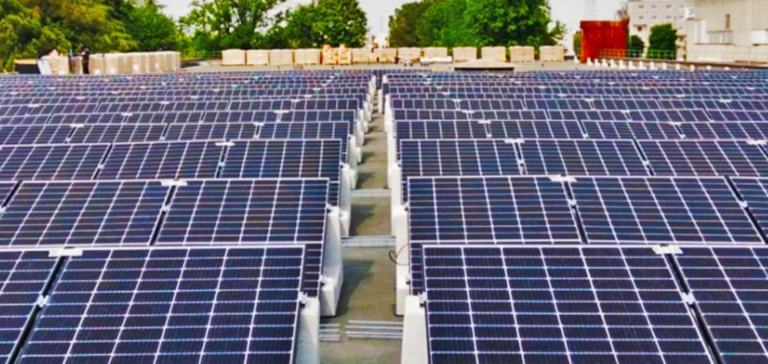The collaboration between Germany, Ukraine and the European Investment Bank (EIB) via a €20 million grant underlines a deep commitment to the energy transition. This initiative, announced at COP28, aims to support renewable energy projects in Ukrainian municipalities, targeting mainly hospitals and schools.
Strengthening energy independence
The donation, which comes from the International Climate Initiative (IKI), supports EIB Global’s IKI Fund, set up in partnership with the German government. It is designed to promote energy independence in Ukrainian public institutions, in line with the objectives of the Paris Agreement and Ukraine’s European integration.
Sustainable Involvement and Resilience
The RES (Renewable Energy Solution) program provides for the integration of renewable energy solutions in public buildings, including solar systems, biomass solutions and geothermal heat pumps. These initiatives, accompanied by battery storage, will improve energy autonomy and the resilience of critical infrastructures, particularly in the face of Russian attacks on energy infrastructures.
Long-standing German-Ukrainian cooperation
This project is part of long-standing German-Ukrainian cooperation, reinforcing green reconstruction efforts and supporting the country’s energy transition. Deutsche Gesellschaft für Internationale Zusammenarbeit (GIZ) GmbH will provide the necessary technical assistance.
A Broad and Significant Impact
The leaders involved, including EIB President Werner Hoyer and Robert Habeck, Germany’s Federal Minister for Economic Affairs and Climate Action, underline the importance of this partnership for the reconstruction of Ukraine. This program represents an important step towards a secure, carbon-neutral energy future for Ukrainian citizens.
The synergy of these efforts demonstrates a strong commitment to sustainable reconstruction and an efficient energy transition in Ukraine, laying the foundations for fruitful collaboration in the future.





















